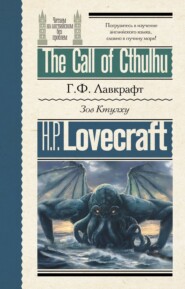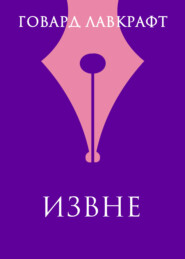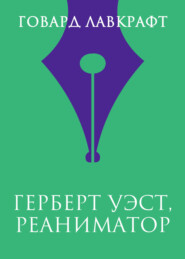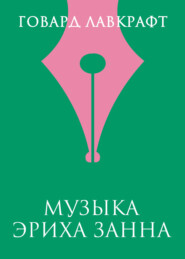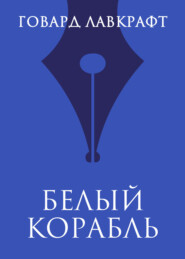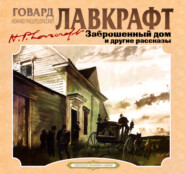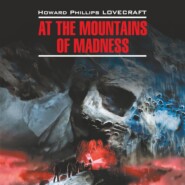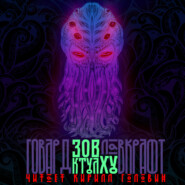По всем вопросам обращайтесь на: info@litportal.ru
(©) 2003-2025.
✖
Selected Stories
Настройки чтения
Размер шрифта
Высота строк
Поля
That same night saw the beginning of the second Arkham horror – the horror that to me eclipsed the plague itself. Christ Church Cemetery was the scene of a terrible killing; a watchman having been clawed to death in a manner not only too hideous for description, but raising a doubt as to the human agency of the deed. The victim had been seen alive considerably after midnight – the dawn revealed the unutterable thing. The manager of a circus at the neighbouring town of Bolton was questioned, but he swore that no beast had at any time escaped from its cage. Those who found the body noted a trail of blood leading to the receiving tomb, where a small pool of red lay on the concrete just outside the gate. A fainter trail led away towards the woods, but it soon gave out.
The next night devils danced on the roofs of Arkham, and unnatural madness howled in the wind. Through the fevered town had crept a curse which some said was greater than the plague, and which some whispered was the embodied demon-soul of the plague itself. Eight houses were entered by a nameless thing which strewed red death in its wake – in all, seventeen maimed and shapeless remnants of bodies were left behind by the voiceless, sadistic monster that crept abroad. A few persons had half seen it in the dark, and said it was white and like a malformed ape or anthropomorphic fiend. It had not left behind quite all that it had attacked, for sometimes it had been hungry. The number it had killed was fourteen; three of the bodies had been in stricken homes and had not been alive.
On the third night frantic bands of searchers, led by the police, captured it in a house on Crane Street near the Miskatonic campus. They had organized the quest with care, keeping in touch by means of volunteer telephone stations, and when someone in the college district had reported hearing a scratching at a shuttered window, the net was quickly spread. On account of the general alarm and precautions, there were only two more victims, and the capture was effected without major casualties. The thing was finally stopped by a bullet, though not a fatal one, and was rushed to the local hospital amidst universal excitement and loathing.
For it had been a man. This much was clear despite the nauseous eyes, the voiceless simianism, and the demoniac savagery. They dressed the wound and carted it to the asylum at Sefton, where it beat its head against the walls of a padded cell for sixteen years – until the recent mishap, when it escaped under circumstances that few like to mention. What had most disgusted the searchers of Arkham was the thing they noticed when the monster’s face was cleaned – the mocking, unbelievable resemblance to a learned and self-sacrificing martyr who had been entombed but three days before – the late Dr Allan Halsey, public benefactor and dean of the medical school of Miskatonic University.
To the vanished Herbert West and to me the disgust and horror were supreme. I shudder tonight as I think of it, shudder even more than I did that morning when West muttered through his bandages,
‘Damn it, it wasn’t quite fresh enough!’
III. SIX SHOTS BY MOONLIGHT
It is uncommon to fire all six shots of a revolver with great suddenness when one would probably be sufficient, but many things in the life of Herbert West were uncommon. It is, for instance, not often that a young physician leaving college is obliged to conceal the principles which guide his selection of a home and office, yet that was the case with Herbert West. When he and I obtained our degrees at the medical school of Miskatonic University, and sought to relieve our poverty by setting up as general practitioners, we took great care not to say that we chose our house because it was fairly well isolated, and as near as possible to the potter’s field.
Reticence such as this is seldom without a cause, nor indeed was ours; for our requirements were those resulting from a life-work distinctly unpopular. Outwardly we were doctors only, but beneath the surface were aims of far greater and more terrible moment – for the essence of Herbert West’s existence was a quest amid black and forbidden realms of the unknown, in which he hoped to uncover the secret of life and restore to perpetual animation the graveyard’s cold clay. Such a quest demands strange materials, among them fresh human bodies; and in order to keep supplied with these indispensable things one must live quietly and not far from a place of informal interment.
West and I had met in college, and I had been the only one to sympathize with his hideous experiments. Gradually I had come to be his inseparable assistant, and now that we were out of college we had to keep together. It was not easy to find a good opening for two doctors in company, but finally the influence of the university secured us a practice in Bolton – a factory town near Arkham, the seat of the college. The Bolton Worsted Mills are the largest in the Miskatonic Valley, and their polyglot employees are never popular as patients with the local physicians. We chose our house with the greatest care, seizing at last on a rather rundown cottage near the end of Pond Street; five numbers from the closest neighbour, and separated from the local potter’s field by only a stretch of meadow land, bisected by a narrow neck of the rather dense forest which lies to thenorth. The distance was greater than we wished, but we could get no nearer house without going on the other side of the field, wholly out of the factory district. We were not much displeased, however, since there were no people between us and our sinister source of supplies. The walk was a trifle long, but we could haul our silent specimens undisturbed.
Our practice was surprisingly large from the very first – large enough to please most young doctors, and large enough to prove a bore and a burden to students whose real interest lay elsewhere. The mill-hands were of somewhat turbulent inclinations; and besides their many natural needs, their frequent clashes and stabbing affrays gave us plenty to do. But what actually absorbed our minds was the secret laboratory we had fitted up in the cellar – the laboratory with the long table under the electric lights, where in the small hours of the morning we often injected West’s various solutions into the veins of the things we dragged from the potter’s field. West was experimenting madly to find something which would start man’s vital motions anew after they had been stopped by the thing we call death, but had encountered the most ghastly obstacles. The solution had to be differently compounded for different types—what would serve for guinea-pigs would not serve for human beings, and different specimens required large modifications.
The bodies had to be exceedingly fresh, or the slight decomposition of brain tissue would render perfect reanimation impossible. Indeed, the greatest problem was to get them fresh enough – West had had horrible experiences during his secret college researches with corpses of doubtful vintage. The results of partial or imperfect animation were much more hideous than were the total failures, and we both held fearsome recollections of such things. Ever since our first demoniac session in the deserted farm-house on Meadow Hill in Arkham, we had felt a brooding menace; and West, though a calm, blond, blue-eyed scientific automaton in most respects, often confessed to a shuddering sensation of stealthy pursuit. He half felt that he was followed – psychological delusion of shaken nerves, enhanced by the undeniably disturbing fact that at least one of our reanimated specimens was still alive – a frightful carnivorous thing in a padded cell at Sefton. Then there was another – our first – whose exact fate we had never learned.
We had fair luck with specimens in Bolton – much better than in Arkham. We had not been settled a week before we got an accident victim on the very night of burial, and made it open its eyes with an amazingly rational expression before the solution failed. It had lost an arm – if it had been a perfect body we might have succeeded better. Between then and the next January we secured three more, one total failure, one case of marked muscular motion, and one rather shivery thing – it rose of itself and uttered a sound. Then came a period when luck was poor; interments fell off, and those that did occur were of specimens either too diseased or too maimed for us. We kept track of all the deaths and their circumstances with systematic care.
One March night, however, we unexpectedly obtained a specimen which did not come from the potter’s field. In Bolton the prevailing spirit of Puritanism had outlawed the sport of boxing – with the usual result. Surreptitious and ill-conducted bouts among the mill-workers were common, and occasionally professional talent of low grade was imported. This late winter night there had been such a match; evidently with disastrous results, since two timorous Poles had come to us with incoherently whispered entreaties to attend to a very secret and desperate case. We followed them to an abandoned barn, where the remnants of a crowd of frightened foreigners were watching a silent black form on the floor.
The match had been between Kid O’Brien – a lubberly and now quaking youth with a most un-Hibernian hooked nose – and Buck Robinson, ‘The Harlem Smoke.’ The negro had been knocked out, and a moment’s examination showed us that he would permanently remain so. He was a loathsome, gorilla-like thing, with abnormally long arms which I could not help calling fore-legs, and a face that conjured up thoughts of unspeakable Congo secrets and tom-tom poundings under an eery moon. The body must have looked even worse in life – but the world holds many ugly things. Fear was upon the whole pitiful crowd, for they did not know what the law would expect of them if the affair were not hushed up; and they were grateful when West, in spite of my involuntary shudders, offered to get rid of the thing quietly – for a purpose I knew too well.
There was bright moonlight over the snowless landscape, but we dressed the thing and carried it home between us through the deserted streets and meadows, as we had carried a similar thing one horrible night in Arkham. We approached the house from the field in the rear, took the specimen in the back door and down the cellar stairs, and prepared it for the usual experiment. Our fear of the police was absurdly great, though we had timed our trip to avoid the solitary patrolman of that section.
The result was wearily anti-climatic. Ghastly as our prize appeared, it was wholly unresponsive to every solution we injected in its black arm, solutions prepared from experience with white specimens only. So as the hour grew dangerously near to dawn, we did as we had done with the others – dragged the thing across the meadows to the neck of the woods near the potter’s field, and buried it there in the best sort of grave the frozen ground would furnish. The grave was not very deep, but fully as good as that of the previous specimen – the thing which had risen of itself and uttered a sound. In the light of our dark lanterns we carefully covered it with leaves and dead vines, fairly certain that the police would never find it in a forest so dim and dense.
The next day I was increasingly apprehensive about the police, for a patient brought rumours of a suspected fight and death. West had still another source of worry, for he had been called in the afternoon to a case which ended very threateningly. An Italian woman had become hysterical over her missing child, a lad of five who had strayed off early in the morning and failed to appear for dinner – and had developed symptoms highly alarming in view of an always weak heart. It was a very foolish hysteria, for the boy had often run away before; but Italian peasants are exceedingly superstitious, and this woman seemed as much harassed by omens as by facts. About seven o’clock in the evening she had died, and her frantic husband had made a frightful scene in his efforts to kill West, whom he wildly blamed for not saving her life. Friends had held him when he drew a stiletto, but West departed amidst his inhuman shrieks, curses, and oaths of vengeance. In his latest affliction the fellow seemed to have forgotten his child, who was still missing as the night advanced. There was some talk of searching the woods, but most of the family’s friends were busy with the dead woman and the screaming man. Altogether, the nervous strain upon West must have been tremendous. Thoughts of the police and of the mad Italian both weighed heavily.
We retired about eleven, but I did not sleep well. Bolton had a surprisingly good police force for so small a town, and I could not help fearing the mess which would ensure if the affair of the night before were ever tracked down. It might mean the end of all our local work – and perhaps prison for both West and me. I did not like those rumours of a fight which were floating about. After the clock had struck three the moon shone in my eyes, but I turned over without rising to pull down the shade. Then came the steady rattling at the back door.
I lay still and somewhat dazed, but before long heard West’s rap on my door. He was clad in dressing-gown and slippers, and had in his hands a revolver and an electric flashlight. From the revolver I knew that he was thinking more of the crazed Italian than of the police.
‘We’d better both go,’ he whispered. ‘It wouldn’t do not to answer it anyway, and it may be a patient – it would be like one of those fools to try the back door.’
So we both went down the stairs on tiptoe, with a fear partly justified and partly that which comes only from the soul of the weird small hours. The rattling continued, growing somewhat louder. When we reached the door I cautiously unbolted it and threw it open, and as the moon streamed revealingly down on the form silhouetted there, West did a peculiar thing. Despite the obvious danger of attracting notice and bringing down on our heads the dreaded police investigation – a thing which after all was mercifully averted by the relative isolation of our cottage – my friend suddenly, excitedly, and unnecessarily emptied all six chambers of his revolver into the nocturnal visitor.
For that visitor was neither Italian nor policeman. Looming hideously against the spectral moon was a gigantic misshapen thing not to be imagined save in nightmares – a glassy-eyed, ink-black apparition nearly on all fours, covered with bits of mould, leaves, and vines, foul with caked blood, and having between its glistening teeth a snow-white, terrible, cylindrical object terminating in a tiny hand.
IV. THE SCREAM OF THE DEAD
The scream of a dead man gave to me that acute and added horror of Dr Herbert West which harassed the latter years of our companionship. It is natural that such a thing as a dead man’s scream should give horror, for it is obviously not a pleasing or ordinary occurrence; but I was used to similar experiences, hence suffered on this occasion only because of a particular circumstance. And, as I have implied, it was not of the dead man himself that I became afraid.
Herbert West, whose associate and assistant I was, possessed scientific interests far beyond the usual routine of a village physician. That was why, when establishing his practice in Bolton, he had chosen an isolated house near the potter’s field. Briefly and brutally stated, West’s sole absorbing interest was a secret study of the phenomena of life and its cessation, leading towards the reanimation of the dead through injections of an excitant solution. For this ghastly experimenting it was necessary to have a constant supply of very fresh human bodies; very fresh because even the least decay hopelessly damaged the brain structure, and human because we found that the solution had to be compounded differently for different types of organisms. Scores of rabbits and guinea-pigs had been killed and treated, but their trail was a blind one. West had never fully succeeded because he had never been able to secure a corpse sufficiently fresh. What he wanted were bodies from which vitality had only just departed; bodies with every cell intact and capable of receiving again the impulse towards that mode of motion called life. There was hope that this second and artificial life might be made perpetual by repetitions of the injection, but we had learned that an ordinary natural life would not respond to the action. To establish the artificial motion, nocturnal life must be extinct – the specimens must be very fresh, but genuinely dead.
The awesome quest had begun when West and I were students at the Miskatonic University medical school in Arkham, vividly conscious for the first time of the thoroughly mechanical nature of life. That was seven years before, but West looked scarcely a day older now – he was small, blond, clean-shaven, soft-voiced, and spectacled, with only an occasional flash of a cold blue eye to tell of the hardening and growing fanaticism of his character under the pressure of his terrible investigations. Our experiences had often been hideous in the extreme; the results of defective reanimation, when lumps of graveyard clay had been galvanized into morbid, unnatural, and brainless motion by various modifications of the vital solution.
One thing had uttered a nerve-shattering scream; another had risen violently, beaten us both to unconsciousness, and run amuck in a shocking way before it could be placed behind asylum bars; still another, a loathsome African monstrosity, had clawed out of its shallow grave and done a deed – West had had to shoot that object. We could not get bodies fresh enough to show any trace of reason when reanimated, so had perforce created nameless horrors. It was disturbing to think that one, perhaps two, of our monsters still lived—that thought haunted us shadowingly, till finally West disappeared under frightful circumstances. But at the time of the scream in the cellar laboratory of the isolated Bolton cottage, our fears were subordinate to our anxiety for extremely fresh specimens. West was more avid than I, so that it almost seemed to me that he looked half-covetously at any very healthy living physique.
It was in July, 1910, that the bad luck regarding specimens began to turn. I had been on a long visit to my parents in Illinois, and upon my return found West in a state of singular elation. He had, he told me excitedly, in all likelihood solved the problem of freshness through an approach from an entirely new angle – that of artificial preservation. I had known that he was working on a new and highly unusual embalming compound, and was not surprised that it had turned out well; but until he explained the details I was rather puzzled as to how such a compound could help in our work, since the objectionable staleness of the specimens was largely due to delay occurring before we secured them. This, I now saw, West had clearly recognized; creating his embalming compound for future rather than immediate use, and trusting to fate to supply again some very recent and unburied corpse, as it had years before when we obtained the Negro killed in the Bolton prize-fight. At last fate had been kind, so that on this occasion there lay in the secret cellar laboratory a corpse whose decay could not by any possibility have begun. What would happen on reanimation, and whether we could hope for a revival of mind and reason West did not venture to predict. The experiment would be a landmark in our studies, and he had saved the new body for my return, so that both might share the spectacle in accustomed fashion.
West told me how he had obtained the specimen. It had been a vigorous man; a well-dressed stranger just off the train on his way to transact some business with the Bolton Worsted Mills. The walk through the town had been long, and by the time the traveller paused at our cottage to ask the way to the factories his heart had become greatly overtaxed. He had refused a stimulant, and had suddenly dropped dead only a moment later. The body, as might be expected, seemed to West a heaven-sent gift. In his brief conversation the stranger had made it clear that he was unknown in Bolton, and a search of his pockets subsequently revealed him to be one Robert Leavitt of St Louis, apparently without a family to make inquiries about his disappearance. If this man could not be restored to life, no one would know of our experiment. We buried our materials in a dense strip of woods between the house and the potter’s field. If, on the other hand, he could be restored, our fame would be brilliantly and perpetually established. So without delay West had injected into the body’s wrist the compound which would hold it fresh for use after my arrival. The matter of the presumably weak heart, which to my mind imperilled the success of our experiment, did not appear to trouble West extensively. He hoped at last to obtain what he had never obtained before – a rekindled spark of reason and perhaps a normal, living creature.
So on the night of July 18, 1910, Herbert West and I stood in the cellar laboratory and gazed at a white, silent figure beneath the dazzling arc-light. The embalming compound had worked uncannily well, for as I stared fascinatedly at the sturdy frame which had lain two weeks without stiffening I was moved to seek West’s assurance that the thing was really dead. This assurance he gave readily enough; reminding me that the reanimating solution was never used without careful tests as to life; since it could have no effect if any of the original vitality were present. As West proceeded to take preliminary steps, I was impressed by the vast intricacy of the new experiment; an intricacy so vast that he could trust no hand less delicate than his own. Forbidding me to touch the body, he first injected a drug in the wrist just beside the place his needle had punctured when injecting the embalming compound. This, he said, was to neutralize the compound and release the system to a normal relaxation so that the reanimating solution might freely work when injected. Slightly later, when a change and a gentle tremor seemed to affect the dead limbs, West stuffed a pillow-like object violently over the twitching face, not withdrawing it until the corpse appeared quiet and ready for our attempt at reanimation. The pale enthusiast now applied some last perfunctory tests for absolute lifelessness, withdrew satisfied, and finally injected into the left arm an accurately measured amount of the vital elixir; prepared during the afternoon with a greater care than we had used since college days, when our feats were new and groping. I cannot express the wild, breathless suspense with which we waited for results on this first really fresh specimen – the first we could reasonably expect to open its lips in rational speech, perhaps to tell of what it had seen beyond the unfathomable abyss.
West was a materialist, believing in no soul and attributing all the working of consciousness to bodily phenomena; consequently he looked for no revelation of hideous secrets from gulfs and caverns beyond death’s barrier. I did not wholly disagree with him theoretically, yet held vague instinctive remnants of the primitive faith of my forefathers; so that I could not help eyeing the corpse with a certain amount of awe and terrible expectation. Besides – I could not extract from my memory that hideous, inhuman shriek we heard on the night we tried our first experiment in the deserted farmhouse at Arkham.
Very little time had elapsed before I saw the attempt was not to be a total failure. A touch of colour came to cheeks hitherto chalk-white, and spread out under the curiously ample stubble of sandy beard. West, who had his hand on the pulse of the left wrist, suddenly nodded significantly; and almost simultaneously a mist appeared on the mirror inclined above the body’s mouth. There followed a few spasmodic muscular motions, and then an audible breathing, and visible motion of the chest. I looked at the closed eyelids, and thought I detected a quivering. Then the lids opened, showing eyes which were grey, calm, and alive, but still unintelligent and not even curious.
In a moment of fantastic whim I whispered questions to the reddening ears; questions of other worlds of which the memory might still be present. Subsequent terror drove them from my mind, but I think the last one, which I repeated was: ‘Where have you been?’ I do not yet know whether I was answered or not, for no sound came from the well-shaped mouth; but I do know that at that moment I firmly thought the thin lips moved silently, forming syllables which I would have vocalized as ‘only now’ if that phrase had possessed any sense or relevancy. At that moment, as I say, I was elated with the conviction that the one great goal had been attained; and that for the first time a reanimated corpse had uttered distinct words impelled by actual reason. In the next moment there was no doubt about the triumph; no doubt that the solution had truly accomplished, at least temporarily, its full mission of restoring rational and articulate life to the dead. But in that triumph there came to me the greatest of all horrors – not horror of the thing that spoke, but of the deed that I had witnessed and of the man with whom my professional fortunes were joined.
For that very fresh body, at last writhing into full and terrifying consciousness with eyes dilated at the memory of its last scene on earth, threw out its frantic hands in a life and death struggle with the air; and suddenly collapsing into a second and final dissolution from which there could be no return, screamed out the cry that will ring eternally in my aching brain:
‘Help! Keep off, you cursed little tow-head fiend – keep that damned needle away from me!’
V. THE HORROR FROM THE SHADOWS
Many men have related hideous things, not mentioned in print, which happened on the battlefields of the Great War. Some of these things have made me faint, others have convulsed me with devastating nausea, while still others have made me tremble and look behind me in the dark; yet despite the worst of them I believe I can relate the most hideous thing of all – the shocking, the unnatural, the unbelievable horror from the shadows.
In 1915 I was a physician with the rank of First Lieutenant in a Canadian regiment in Flanders, one of many Americans to precede the government itself into the gigantic struggle. I had not entered the army on my initiative, but rather as a natural result of the enlistment of the man whose indispensable assistant I was – the celebrated Boston surgical specialist, Dr Herbert West. Dr West had been avid for a chance to serve as surgeon in a great war, and when the chance had come he carried me with him almost against my will. There were reasons why I would have been glad to let the war separate us; reasons why I found the practice of medicine and the companionship of West more and more irritating; but when he had gone to Ottawa and through a colleague’s influence secured a medical commission as Major, I could not resist the imperious persuasion of one determined that I should accompany him in my usual capacity.
When I say that Dr West was avid to serve in battle, I do not mean to imply that he was either naturally warlike or anxious for the safety of civilization. Always an ice-cold intellectual machine: slight, blond, blue-eyed, and spectacled: I think he secretly sneered at my occasional martial enthusiams and censures of supine neutrality. There was, however, something he wanted in embattled Flanders; and in order to secure it he had to assume a military exterior. What he wanted was not a thing which many persons want, but something connected with the peculiar branch of medical science which he had chosen quite clandestinely to follow, and in which he had achieved amazing and occasionally hideous results. It was, in fact, nothing more or less than an abundant supply of freshly killed men in every stage of dismemberment.
Herbert West needed fresh bodies because his life-work was the reanimation of the dead. This work was not known to the fashionable clientele who had so swiftly built up his fame after his arrival in Boston; but was only too well known to me, who had been his closest friend and sole assistant since the old days in Miskatonic University medical school at Arkham. It was in those college days that he had begun his terrible experiments, first on small animals and then on human bodies shockingly obtained. There was a solution which he injected into the veins of dead things, and if they were fresh enough they responded in strange ways. He had had much trouble in discovering the proper formula, for each type of organism was found to need a stimulus especially adapted to it. Terror stalked him when he reflected on his partial failures; nameless things resulting from imperfect solutions or from bodies insufficiently fresh. A certain number of these failures had remained alive – one was in an asylum while others had vanished – and as he thought of conceivable yet virtually impossible eventualities he often shivered beneath his usual stolidity.
West had soon learned that absolute freshness was the prime requisite for useful specimens, and had accordingly resorted to frightful and unnatural expedients in body-snatching. In college, and during our early practice together in the factory town of Bolton, my attitude towards him had been largely one of fascinated admiration; but as his boldness in methods grew, I began to develop a gnawing fear. I did not like the way he looked at healthy living bodies; and then there came a nightmarish session in the cellar laboratory when I learned that a certain specimen had been a living body when he secured it. That was the first time he had ever been able to revive the quality of rational thought in a corpse; and his success, obtained at such a loathsome cost, had completely hardened him.
Of his methods in the intervening five years I dare not speak. I was held to him by sheer force of fear, and witnessed sights that no human tongue could repeat. Gradually I came to find Herbert West himself more horrible than anything he did – that was when it dawned on me that his once normal scientific zeal for prolonging life had subtly degenerated into a mere morbid and ghoulish curiosity and secret sense of charnel picturesqueness. His interest became a hellish and perverse addiction to the repellently and fiendishly abnormal; he gloated calmly over artificial monstrosities which would make most healthy men drop dead from fright and disgust; he became, behind his pallid intellectuality, a fastidious Baudelaire of physical experiment – a languid Elagabalus of the tombs.
Dangers he met unflinchingly; crimes he committed unmoved. I think the climax came when he had proved his point that rational life can be restored, and had sought new worlds to conquer by experimenting on the reanimation of detached parts of bodies. He had wild and original ideas on the independent vital properties of organic cells and nerve tissues separated from natural physiological systems; and achieved some hideous preliminary results in the form of never-dying, artificially nourished tissue obtained from the nearly-hatched eggs of an indescribable tropical reptile. Two biological points he was exceedingly anxious to settle – first, whether any amount of consciousness and rational action might be possible without the brain, proceeding from the spinal cord and various nerve-centres; and second, whether any kind of ethereal, intangible relation distinct from the material cells may exist to link the surgically separated parts of what has previously been a single living organism. All this research work required a prodigious supply of freshly slaughtered human flesh – and that was why Herbert West had entered the Great War.
The phantasmal, unmentionable thing occurred one midnight late in March, 1915, in a field hospital behind the lines at St Eloi. I wonder even now if it could have been other than a demoniac dream of delirium. West had a private laboratory in an east room of the barn-like temporary edifice, assigned him on his plea that he was devising new and radical methods for the treatment of hitherto hopeless cases of maiming. There he worked like a butcher in the midst of his gory wares – I could never get used to the levity with which he handled and classified certain things. At times he actually did perform marvels of surgery for the soldiers; but his chief delights were of a less public and philanthropic kind, requiring many explanations of sounds which seemed peculiar even amidst that babel of the damned. Among these sounds were frequent revolver-shots – surely not uncommon on a battlefield, but distinctly uncommon in a hospital. Dr West’s reanimated specimens were not meant for long existence or a large audience. Besides human tissue, West employed much of the reptile embryo tissue which he had cultivated with such singular results. It was better than human material for maintaining life in organless fragments, and that was now my friend’s chief activity. In a dark corner of the laboratory, over a queer incubating burner, he kept a large covered vat full of this reptilian cell-matter; which multiplied and grew puffily and hideously.
On the night of which I speak we had a splendid new specimen – a man at once physically powerful and of such high mentality that a sensitive nervous system was assured. It was rather ironic, for he was the officer who had helped West to his commission, and who was now to have been our associate. Moreover, he had in the past secretly studied the theory of reanimation to some extent under West. Major Sir Eric Moreland Clapham-Lee, D.S.O., was the greatest surgeon in our division, and had been hastily assigned to the St Eloi sector when news of the heavy fighting reached headquarters. He had come in an aeroplane piloted by the intrepid Lieutenant Ronald Hill, only to be shot down when directly over his destination. The fall had been spectacular and awful; Hill was unrecognizable afterwards, but the wreck yielded up the great surgeon in a nearly decapitated but otherwise intact condition. West had greedily seized the lifeless thing which had once been his friend and fellow-scholar; and I shuddered when he finished severing the head, placed it in his hellish vat of pulpy reptile-tissue to preserve it for future experiments, and proceeded to treat the decapitated body on the operating table. He injected new blood, joined certain veins, arteries, and nerves at the headless neck, and closed the ghastly aperture with engrafted skin from an unidentified specimen which had borne an officer’s uniform. I knew what he wanted – to see if this highly organized body could exhibit, without its head, any of the signs of mental life which had distinguished Sir Eric Moreland Clapham-Lee. Once a student of reanimation, this silent trunk was now gruesomely called upon to exemplify it.
I can still see Herbert West under the sinister electric light as he injected his reanimating solution into the arm of the headless body. The scene I cannot describe – I should faint if I tried it, for there is madness in a room full of classified charnel things, with blood and lesser human debris almost ankle-deep on the slimy floor, and with hideous reptilian abnormalities sprouting, bubbling, and baking over a winking bluish-green spectre of dim flame in a far corner of black shadows.
The specimen, as West, repeatedly observed, had a splendid nervous system. Much was expected of it; and as a few twitching motions began to appear, I could see the feverish interest on West’s face. He was ready, I think, to see proof of his increasingly strong opinion that consciousness, reason, and personality can exist independently of the brain – that man has no central connective spirit, but is merely a machine of nervous matter, each section more or less complete in itself. In one triumphant demonstration West was about to relegate the mystery of life to the category of myth. The body now twitched more vigorously, and beneath our avid eyes commenced to heave in a frightful way. The arms stirred disquietingly, the legs drew up, and various muscles contracted in a repulsive kind of writhing. Then the headless thing threw out its arms in a gesture which was unmistakably one of desperation – an intelligent desperation apparently sufficient to prove every theory of Herbert West. Certainly, the nerves were recalling the man’s last act in life; the struggle to get free of the falling aeroplane.
What followed, I shall never positively know. It may have been wholly an hallucination from the shock caused at that instant by the sudden and complete destruction of the building in a cataclysm of German shell-fire – who can gainsay it, since West and I were the only proved survivors? West liked to think that before his recent disappearance, but there were times when he could not; for it was queer that we both had the same hallucination. The hideous occurrence itself was very simple, notable only for what it implied.
The body on the table had risen with a blind and terrible groping, and we had heard a sound. I should not call that sound a voice, for it was too awful. And yet its timbre was not the most awful thing about it. Neither was its message – it had merely screamed, ‘Jump, Ronald, for God’s sake, jump!’ The awful thing was its source.







